
Which medical condition-characterized by the rapid onset of delirium, mania, and psychosis-is linked with bipolar disorder? Take the 5-question quiz and learn more.


Which medical condition-characterized by the rapid onset of delirium, mania, and psychosis-is linked with bipolar disorder? Take the 5-question quiz and learn more.

The impetus to consider inflammation as potentially relevant to the pathoetiology of domain-based psychopathology (eg, anhedonia) and/or mental disorders, is provided by a confluence of factors discussed here.

Treatments for borderlinity and bipolarity are quite different. What if just 3 items from a standard screening questionnaire could increase your diagnostic certainty by 30%?
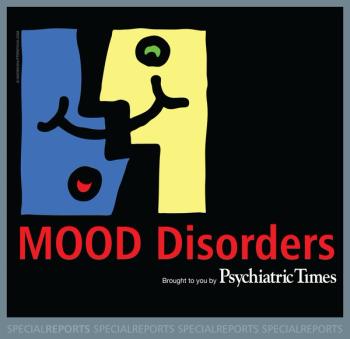
Useful information about mood disorders in 3 key areas-bipolar disorder, comorbid ADHD and depression, and suicide risk.
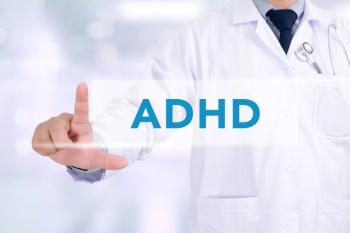
Potential risk factors related to comorbid ADHD and depression, strategies for proper diagnosis, and treatment approaches.

Has DSM-5 made diagnosis of bipolar disorder more difficult? Answers to this and 5 other questions.

A 20-year-old college sophomore with “depression and anxiety,” who is exercising ferociously and who is literally dying to lose more weight sets the stage.

Personality disorders are arguably the most challenging for psychiatrists because they are difficult to diagnose and frequently coexist with psychotic, affective, and anxiety disorders.

Who is responsible for treating the adolescent and young adult with psychiatric issues -- and when and how should transitions in care occur?
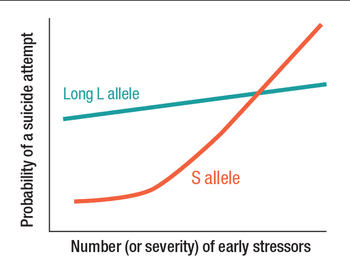
Striking findings on the relationship between stress and depression.
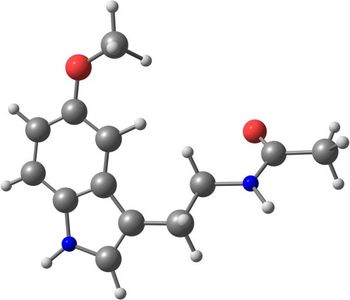
The SRT polymorphism is one of the most well studied genetic variations affecting mood disorders. Once personal genetic information is readily available, can we help patients understand the implications of their results?

An interesting pharmacological approach in terms of anti-suicidal strategies is the use of lithium for treatment of patients with affective disorders. Details here.

An overview of select topics in clinical psycho-oncology, including assessment and management of delirium and brain lesions, mood and anxiety disorders, medication adverse effects, and existential death anxiety.

This study highlights the need to consider a holistic approach when discussing the problem of disruptive behavior in health care settings.

We have medications that can affect serotonin, norepinephrine, and-to a lesser extent-dopamine. Many other neurotransmitters are involved with mood disorders, but we have no medications yet to target them. Neurostimulation offers a non-systemic somatic approach to depression, often with an improved side effect profile. More in this Q&A.

What is the future of psychiatric assessment and treatment of mood disorders? The articles in this Special Report explore some important aspects and issues.

Here: the history of psychotic depression for the Study of the Pharmacotherapy of Psychotic Depression (STOP-PD), a summary its epidemiology, significance, diagnostic complexity, and treatment, as well as case vignettes.

This article reviews the most recent (after 2010) published guidelines on bipolar depression.

Most, if not all, antidepressants can cause bothersome adverse effects. These are described here along with strategies to help patients cope.

Mood disorders in older adults are neither inevitable nor particularly resistant to treatment. With attention to the special needs of older patients during evaluation, treatment, and follow up, clinicians can help many patients derive greater enjoyment from their later years.
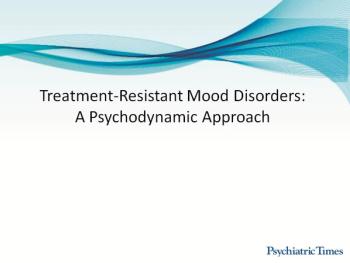
In this podcast, Dr Eric Plakun give an overview of key points and psychodynamic principles on treatment-resistent mood disorders, based on research and clinical experience.
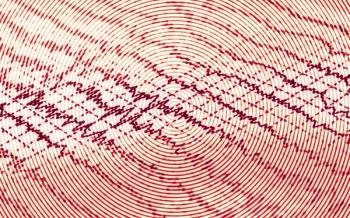
Psychiatric comorbidity in epilepsy represents not only a matter of intellectual interest but also an important variable that affects prognosis in terms of morbidity and mortality.

Because half of pregnancies in this country are unplanned, it's crucial to counsel women of reproductive potential about their medications-regardless of their plans to conceive.

The relationship between bipolar disorder and ADHD remains unclear; however, this combined condition may represent an important genetic and clinical subtype with distinct psychopathology, familiality, and treatment response.

Mood switching is not uncommon and it is much more prevalent in depressed juveniles than in depressed adults, and there is a large apparent excess of antidepressant-associated switching over reported spontaneous diagnostic changes to bipolar disorder. Details here.